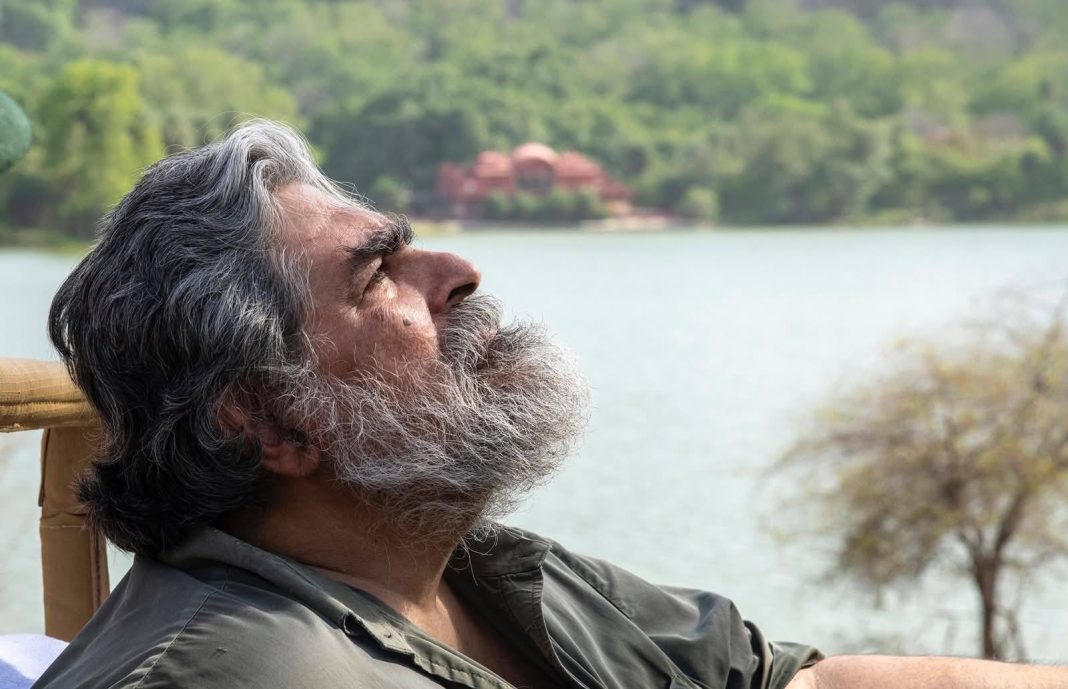
New Delhi, May 31: Valmik Thapar, one of India’s most eminent wildlife conservationists and authors who devoted his life to the protection of tigers, died at his residence Saturday morning. He was 73 and had been diagnosed with cancer in 2024.

Born in New Delhi in 1952, Thapar strongly lobbied for tougher anti-poaching rules and efforts to protect tiger habitats during his five-decade-long career.
A wave of sadness spread among his many admirers including conservationists and political leaders who recalled his tireless and fearless efforts to preserve India’s forests and wildlife.
Thapar dedicated his life to the study and conservation of wild tigers, especially in Rajasthan’s Ranthambore National Park. He co-founded the Ranthambhore Foundation in 1988, a non-governmental organisation focused on community-based conservation efforts.
Congress President Mallikarjun Kharge said India lost a leading authority on tigers. “He was as (sic) one of India’s most respected wildlife experts and was appointed a member of the Tiger Task Force of 2005. My deepest condolences to his family, friends, wildlife enthusiasts and the conservation community,” Kharge said in a post on X.
Congress leaders Jairam Ramesh and Priyanka Gandhi Vadra, NCP leader Praful Patel were among those who paid tributes to Thapar.
“Today’s Ranthambore, particularly, is a testimony to his deep commitment and indefatigable zeal. He was uncommonly knowledgeable on a variety of issues relating to biodiversity, and not a day passed during my ministerial tenure without our talking to each other, with me almost always at the receiving end,” Ramesh posted on X.
Priyanka Gandhi said Thapar “was a force of nature. A pioneer and champion of the cause of conservation, a man who lived life by his own rules, spoke fearlessly and fought courageously for what he believed in”.
“My deepest respect and admiration for him and his unmatched contribution to Wildlife conservation, especially to the protection of tigers in India. He was a friend and a source of inspiration to me,” she said on X.
His tireless dedication to preserving India’s forests and wildlife will always be remembered, Patel said.
Ramesh said that during his tenure as chairman of the Standing Committee, Thapar was a constant source of valuable suggestions and advice.
Thapar’s father, Romesh Thapar, was a well-known journalist. His aunt is historian Romila Thapar, and his cousin is journalist Karan Thapar.
He studied at The Doon School and later graduated with a gold medal in sociology from St Stephen’s College, Delhi University.
Thapar married theatre artiste Sanjana Kapoor, daughter of actor Shashi Kapoor, and they have a son.
Thapar was mentored by Fateh Singh Rathore, a legendary figure in Indian conservation and a key member of the original Project Tiger team.
He was part of more than 150 government panels and task forces, including the National Board for Wildlife, which is led by the prime minister.
In 2005, Thapar was appointed a member of the Tiger Task Force, set up by the UPA government to review the management of tiger reserves following the disappearance of tigers from Sariska Tiger Reserve.
When the task force, chaired by environmentalist Sunita Narain, concluded its report, Thapar submitted a dissent note.
He expressed concern that the report was overly optimistic about the coexistence of tigers and humans.
Thapar argued that for tigers to survive in the long run, certain areas needed to be kept free from human interference. He said that a minimum area should be managed exclusively in its natural form for a tiger.
Thapar wrote or edited more than 30 books on wildlife, including Land of the Tiger: A Natural History of the Indian Subcontinent (1997), and Tiger Fire: 500 Years of the Tiger in India.
He also presented and co-produced several well-known films for channels like the BBC.
One of his more famous works was a six-part series “Land of the Tiger” (1997), which explored the nature and wildlife of the Indian subcontinent.
In 2024, he appeared in the documentary “My Tiger Family,” which showcased his 50 years of observing wild tigers in Ranthambore National Park.

Thapar had strong reservations about Project Cheetah, India’s initiative to reintroduce African cheetahs into the wild. He argued that India does not have the necessary habitat or prey base to support free-ranging cheetahs and that the authorities lacked experience in managing spotted felines in the wild. (PTI)





